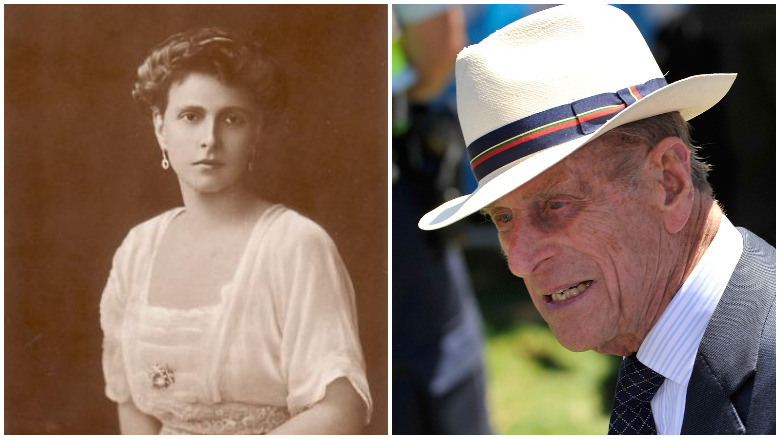
Wikimedia Commons/Getty Princess Alice, the mother of Prince Philip.
Princess Alice of Battenberg was the mother of Britain’s Prince Philip. She is featured in season 3 of Netflix’s series, The Crown. (Warning: This article will contain spoilers for the show).
What was the real story of Princess Alice? It’s a tragic but also a heroic one. She doesn’t make an appearance in The Crown until the fourth episode of the hit streaming show. Played by Jane Lapotaire, she flees Athens and is given sanctuary by Queen Elizabeth II at Buckingham Palace.
The true story is just as dramatic, perhaps even more so. Princess Alice struggled with hearing and mental health issues and became a nun. Forced multiple times into exile, she is also a heroic figure, who is credited with saving the lives of a Jewish family during World War II.
Here’s what you need to know:
The Battenberg Family, Later Mountbatten, Was Originally a Family of German Counts
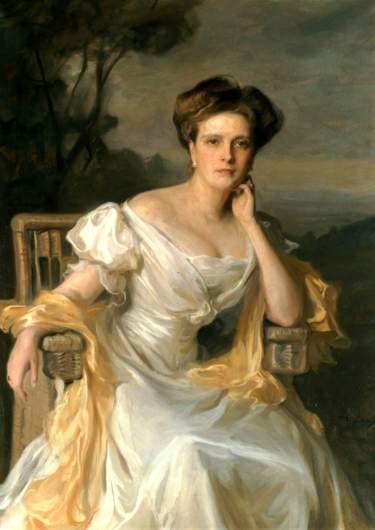
Princess Alice
According to Brittanica, the first Battenbergs “were a family of German counts that died out about 1314 and whose seat was the castle of Kellerburg, near Battenberg, in Hesse.”
The site reports that the title was “revived” in 1851 by Alexander, a younger son of Louis II. Within seven years, his children with the Polish countess Theresa von Hauke were called princes or princesses.
In 1917, their oldest son Louis Alexander became an admiral in the British Navy and marquess of Milford Haven, and, at the request of King George V, all of the family members in England renounced their German titles and name and became Mountbattens instead, Brittanica reports. It was, after all, World War I, and Germany was now the enemy.
Milford Haven was Princess Alice’s father, and she married Prince Andrew of Greece, giving birth to a son, who became Prince Philip, the husband of Queen Elizabeth II. She was also known as Princess Andrew of Greece and Denmark
Princess Alice, Who Had a Hearing Impairment & Spent Time Locked Up in a Sanatorium, Acted Heroically During the Holocaust
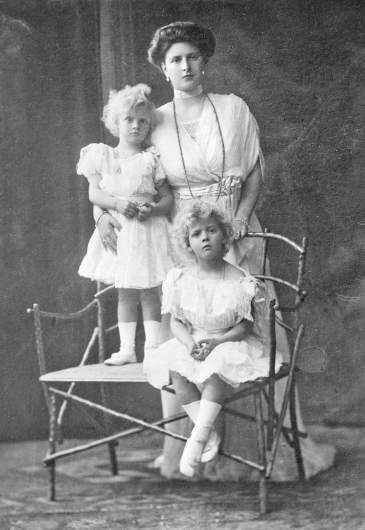
Prince Alice with two of her daughters.
Princess Alice and her husband were originally exiled from Greece. According to UK Metro, the Greek Royal Family was overthrown in 1917. Later, though, she and her husband returned to Greece, but they were exiled again when he was blamed for Greece’s loss in the Greco-Turkish War. (According to Biography.com, Philip was born “on the island of Corfu in Greece, on June 10, 1921.” He grew up in France, Germany, and Great Britain.)
By 1935, the Greek monarchy was back on the throne, and they were allowed to return. However, five years before, Alice was “locked up in a sanatorium in Switzerland and diagnosed as schizophrenic,” reports Metro.
According to the JC, her mental health issues started when the family was exiled in Paris. “She grew more devout and suffered under intense mental strain,” the site reports. “In 1930, she was diagnosed with schizophrenia and admitted to Berlin clinic after saying she could hear voices and believed she had physical relationships with Religious figures.”
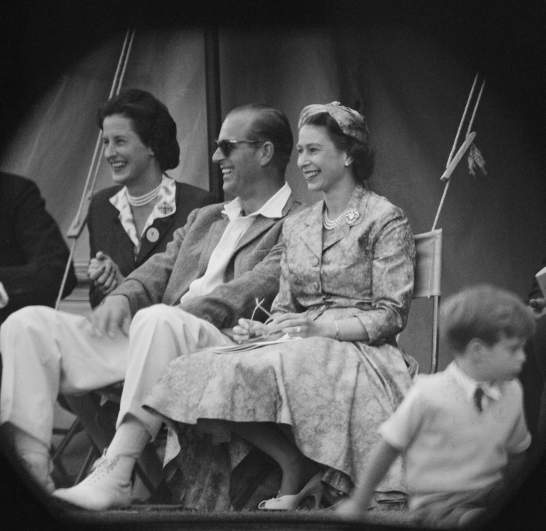
Queen Elizabeth II and Prince Philip, Duke of Edinburgh watch a cricket match at Highclere Castle, Highclere, Hampshire, 3rd August 1958.
That devoutness saved lives.
Yad Vashem, the World Holocaust Remembrance Center, considers Princess Alice one of the righteous among the nations for her actions protecting a Jewish family during the Holocaust. The site says that Alice “was born in Windsor Castle in 1885, as Princess Victoria Alice Elizabeth Julia Marie.” Her mother Princess Victoria of Hesse was a granddaughter of Queen Victoria, and, as such, she was related to most of the Royal Houses of Europe.
According to Yad Vashem, Princess Alice was born deaf and read lips by age 8, giving her a sensitivity toward “the underprivileged and outcast.” She had five children with Prince Andrew of Greece, whom she married in 1903. Outside Philip, her other children were daughters.
During World War II, she was living in Athens, Greece, in a palace of her brother in law, Prince George of Greece. She “worked with the Swedish and Swiss Red Cross,” reported Yad Vashem, which added that she had sons-in-law who fought for the Germans during World War II. In fact, several of her daughters were married to prominent Nazis, according to Haaretz. In fact, her daughter Sophie even named her son Karl Adolf after Hitler.
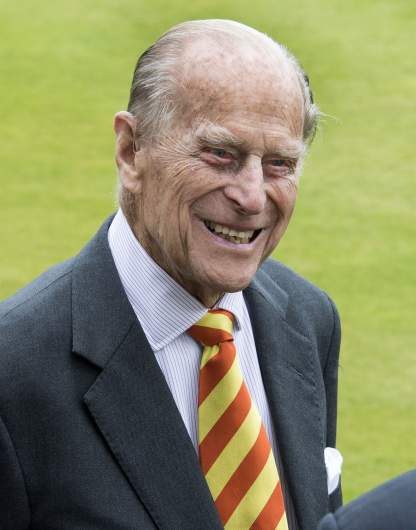
In this photo, Britain’s Prince Philip, Duke of Edinburgh and Honorary Life Member, Marylebone Cricket Club (MCC) smiles during his vist to open the new Warner Stand at Lord’s Cricket Ground in London on May 3, 2017. Philip appeared healthy, although at age 95, his longevity is always a concern.
Princess Alice is crediting with saving the life of the Jewish family of Haimaki Cohen, a former member of Parliament. The Germans invaded Athens and were trying to round up the Jews. Haimaki was dead, but his widow Rachel and children needed refuge. “Princess Alice heard of the family’s desperate situation and offered to shelter Rachel and her daughter, Tilde, at her home. They were later joined by another son who was unable to make the journey to Egypt and had to return to Athens,” reports Yad Vashem, adding, “The Cohens stayed in Princess Alice’s residence until liberation.”
Although the Gestapo grew suspicious and interviewed Alice, she pretended she didn’t know what they were saying because of her hearing challenges.
After the war, she founded the “nursing order of Greek Orthodox nuns – the Christian Sisterhood of Martha and Mary” and moved to the island of Tinos, but did in fact move to Buckingham Palace after a Greek coup, where she died in 1969. She had become, herself, a nun. She asked to be buried in Jerusalem. In 2018, Prince Williams visited her grave at the Mount of Olives.
Prince Philip once said of his mother, as he planted a tree in her honor, according to JC: “She was a person with a deep religious faith, and she would have considered it to be a perfectly natural human action to fellow beings in distress.”
READ NEXT: Harold Wilson: Was He a Russian Spy?